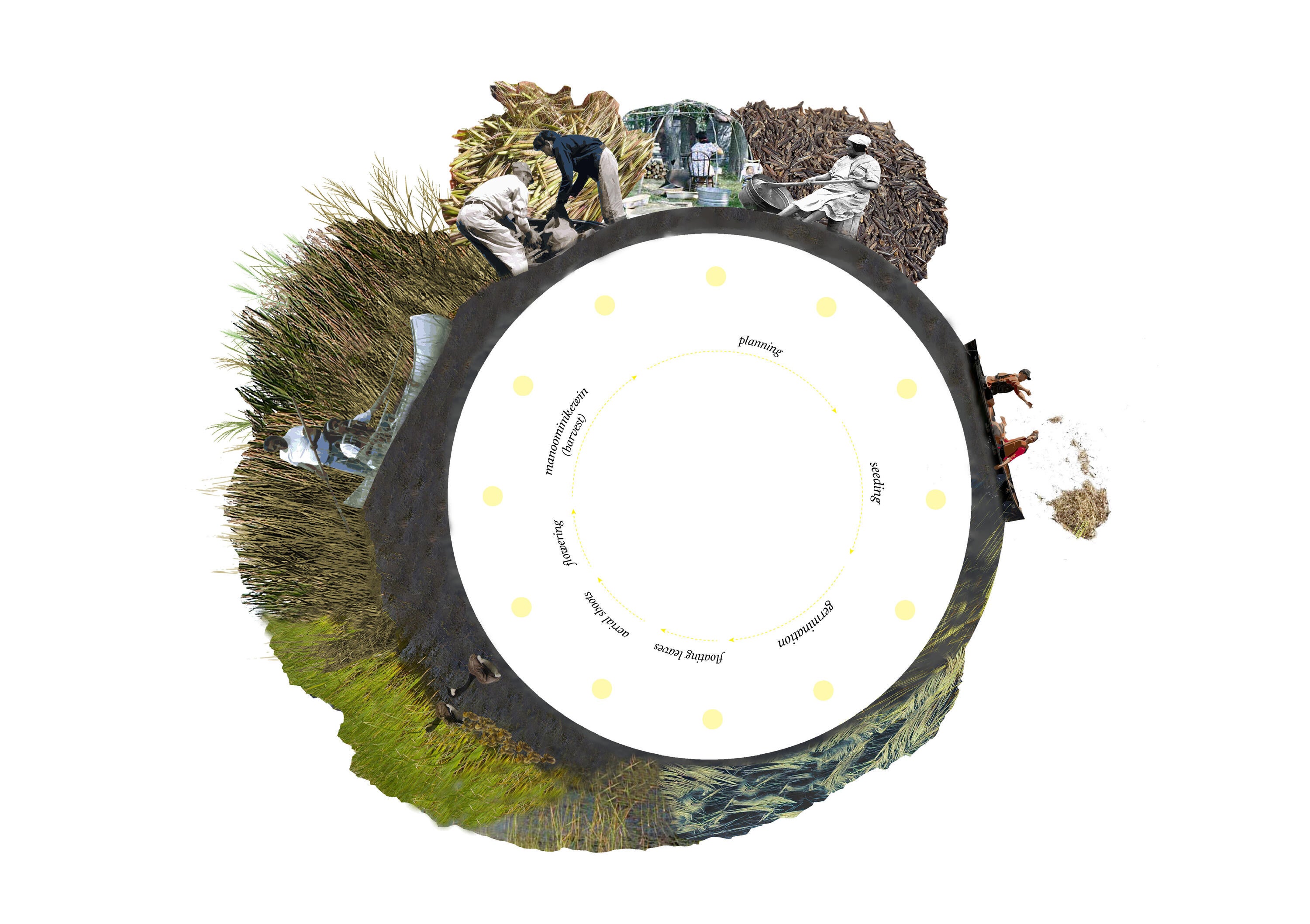Learning from Manoomin: Restor(y)ing relationships between Anishinaabeg, settlers, and more-than-human beings in the Great Lakes Basin

Abstract:
Positioned between multiple worlds, Manoomin - wild rice is described within the Mishomis Book by the leader and activist Edward Benton Benai, as one of the sacred gifts from the Earth to the Anishinaabeg of the Great Lakes Basin. Over the past few centuries however, this relationship has been impacted by settler colonial land practices such as logging, mining, the creation of waterways and removal of harvesting rights through official documents and land dispossessions. While these movements of settler colonialism from governments and individuals have fragmented the relationship between Manoomin and the Anishinaabeg, there has been a growing movement by Indigenous and non-Indigenous individuals and communities to restore wild rice in this region through reseeding, and wetland restoration efforts. Working to directly challenge Western ways of knowing through the study of Indigenous methodologies and reconciliation research from authors such as Leanne Betasamosake Simpson, Shawn Wilson, Ruth Koleszar-Green, and Deborah McGregor, this thesis asks how the restoration of Manoomin might provide a framework to understand relationships between Indigenous peoples, settlers, and more-than-human beings. Three initiatives restoring Manoomin in the Great Lakes Basin are explored with drawings, reflections, and conversation, which in turn document the evolution of the land through the “restorying” of relationships, following principles such as Vanessa Watt’s “Place-Thought” and Willie Ermine’s “Ethical Space”. Within each of the three initiatives, Manoomin offers a range of lessons; beginning with sovereignty, harvesting rights, and contrasting perceptions of land within the restoration of wild rice in Pigeon Lake, ‘Ontario’. The dynamics of co-management are revealed through the restoration of the so-called St. Louis River in ‘Duluth, Minnesota’, one of the most polluted watersheds in the region and the sixth stop along the Anishinaabeg migration from the East coast of Turtle Island. Finally, the importance of establishing respectful relationships is emphasized in conversations with individuals in ‘Michigan’, who are involved in the seeding of Manoomin on the University of Michigan properties and a decades old effort to restore wild rice on Lake Lac Vieux Desert. Through personal reflections on these relationships created through Manoomin, this thesis humbly considers how the process of reconciliation and the restoration of land might meaningfully support efforts towards Indigenous sovereignty and self determination.
The examining committee is as follows:
Supervisor: Jane
Mah
Hutton
Reader: John
McMinn
Internal-external
committee
member:
Mkomose
(Dr.
Andrew
Judge)
External
committee
member:
Dani
Kastelein-Longlade
The
defence
examination
will
take
place:
Thursday,
August 5,
2021,
10:00am
Teams
link
available
via
the graduate
student
Learn
page
or
by request.
The
committee
has
been
approved
as
authorized
by
the
Graduate
Studies
Committee.
A
copy
of
the
thesis
is
available
for
perusal
in
ARC
2106A.